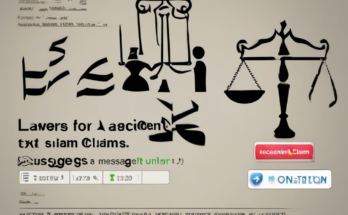Navigating the Complexities of Motorcycle Accident Claims: A Comprehensive Guide
Motorcycle accidents often result in catastrophic injuries and significant financial losses. Successfully navigating the claims process requires a thorough understanding of your rights, the legal landscape, and the strategies involved in securing fair compensation. This comprehensive guide delves into the key aspects of motorcycle accident claims, providing valuable insights for those seeking justice and redress after a devastating crash.
Understanding Liability in Motorcycle Accidents
Establishing liability is crucial in a motorcycle accident claim. Unlike car accidents, where the at-fault driver’s insurance usually covers damages, motorcycle accidents can involve multiple parties and complex factors. Liability can rest with:
- The other driver: This is the most common scenario, where the other driver’s negligence caused the accident (e.g., running a red light, failing to yield).
- Multiple drivers: In some cases, more than one driver might share responsibility for the accident.
- Road hazards: Poorly maintained roads, potholes, or debris can contribute to accidents, making the responsible government entity liable.
- Motorcycle defects: Manufacturer liability can arise if a defect in the motorcycle itself contributed to the crash.
- Third-party negligence: A third party, such as a construction company creating a hazardous work zone, could be held liable.
Determining liability involves investigating the accident scene, gathering evidence (police reports, witness statements, photos, videos), and potentially reconstructing the accident to understand the sequence of events. Experienced legal counsel can be instrumental in this process.
Gathering Evidence After a Motorcycle Accident
Immediately following a motorcycle accident, your priority should be seeking medical attention. However, preserving evidence is equally critical for a successful claim. This includes:
- Contacting emergency services: Report the accident to the police and obtain a copy of the accident report. This report is a crucial piece of evidence.
- Documenting the accident scene: Take photographs and videos of the damage to your motorcycle, the other vehicle(s), and the accident scene itself. Note the road conditions, traffic signs, and any visible hazards.
- Gathering witness information: Obtain contact information from any witnesses to the accident. Their accounts can corroborate your version of events.
- Seeking medical attention: Document all injuries, even those that seem minor at first. Keep records of medical appointments, treatments, and diagnoses.
- Preserving your motorcycle: If possible, avoid moving your motorcycle unless instructed by law enforcement. The damage can provide valuable evidence.
This evidence forms the foundation of your claim. Keeping meticulous records ensures a stronger case and supports your claim for compensation.
Types of Compensation in Motorcycle Accident Claims
Compensation in motorcycle accident claims can cover a broad range of damages, both economic and non-economic. These include:
- Medical expenses: This encompasses all costs associated with your injuries, including hospital bills, doctor visits, physical therapy, medication, and future medical care.
- Lost wages: Compensation for income lost due to your inability to work as a result of your injuries. This includes both past and future lost wages.
- Property damage: Reimbursement for the damage to your motorcycle and any other personal property.
- Pain and suffering: Compensation for the physical and emotional distress caused by the accident. This is often calculated based on the severity and duration of your injuries.
- Loss of consortium: Compensation for the loss of companionship, intimacy, and support experienced by your spouse or partner.
- Wrongful death: In cases where the accident results in death, the surviving family members can file a wrongful death claim to recover damages.
Dealing with Insurance Companies
Insurance companies play a significant role in motorcycle accident claims. They may attempt to minimize their liability and offer low settlements. It is crucial to:
- Review your insurance policy: Understand your coverage and the claims process.
- Avoid making statements to the insurance company without legal counsel: Anything you say can be used against you.
- Keep records of all communication with the insurance company: This includes emails, letters, and phone calls.
- Negotiate with the insurance company through your attorney: An experienced attorney can protect your rights and negotiate a fair settlement.
- Understand your policy limits: Know the maximum amount your insurance policy and the at-fault party’s policy will cover.
Be wary of tactics used by insurance adjusters to undervalue your claim. Seeking legal representation provides a crucial advantage in navigating these complex negotiations.
The Role of a Motorcycle Accident Lawyer
Hiring a motorcycle accident lawyer is highly recommended. They possess the expertise and resources to:
- Investigate the accident: Thoroughly investigate the circumstances surrounding the accident, gathering evidence and identifying all liable parties.
- Negotiate with insurance companies: Negotiate a fair settlement on your behalf, protecting you from aggressive tactics.
- File a lawsuit: If a settlement cannot be reached, file a lawsuit to pursue your claim in court.
- Represent you in court: Represent you in court, advocating for your rights and presenting your case effectively.
- Advise you on legal strategies: Provide expert advice and guidance throughout the entire claims process.
A skilled attorney significantly increases your chances of obtaining fair compensation for your injuries and losses.
Statute of Limitations in Motorcycle Accident Claims
Each state has a statute of limitations that sets a time limit for filing a lawsuit after a motorcycle accident. Missing this deadline can bar you from pursuing your claim. It’s crucial to contact a lawyer as soon as possible to understand the applicable statute of limitations in your jurisdiction and ensure timely action.
Common Mistakes to Avoid in Motorcycle Accident Claims
Several common mistakes can jeopardize a motorcycle accident claim. These include:
- Delaying medical treatment: This can weaken your claim by creating a gap in your medical records.
- Failing to document your injuries and losses thoroughly: Maintain detailed records of all medical expenses, lost wages, and other damages.
- Admitting fault: Avoid making statements that could suggest you were at fault for the accident.
- Settling too quickly: Don’t rush into accepting a settlement before fully understanding the extent of your injuries and losses.
- Not seeking legal representation: An experienced attorney can greatly improve your chances of a successful claim.
Understanding Comparative Negligence
Many states operate under a comparative negligence system. This means that even if you are partially at fault for the accident, you can still recover compensation, but your award will be reduced proportionally to your degree of fault. For example, if you are found 20% at fault, your damages will be reduced by 20%.
Conclusion (Omitted as per instructions)


